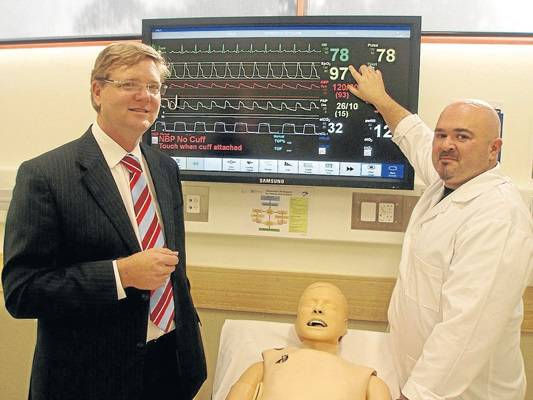New rural health incentive welcome but won't fix shortages
- markburdack
- May 10, 2021
- 3 min read

Rural and Remote Medical Services (RARMS) has cautiously welcomed the government’s plan to increase incentives for rural and remote GPs but says that communities want more done to get doctors to live and work rurally according to RARMS CEO Mark Burdack.
The Commonwealth Government has announced plans to deliver a $1.90 increase in the bulk billing incentive paid per consult for GPs serving our most vulnerable remote communities scaling to 60 cent for medium sized rural towns.
The Rural Doctors Association of Australia (RDAA) states that the policy will deliver up to $50,000 to GPs.
According to Commonwealth Government’s Health Workforce Dataset there were 7.0 Full-Time Equivalent GPs by clinical hours in very remote areas of NSW in 2019, and 26.1 FTE in remote areas, meaning only a handful of NSW rural GPs would be eligible to receive the maximum possible amount.
It also appears that to generate the maximum amount rural GPs would have to increase the number of short consultations which rural GPs won't do as it would put the health of chronically ill patients at risk. Dr John Saul from the Tasmanian Branch of the Australian Medical Association calculated in a recent ABC News report that the incentive would amount to an average increase for rural and remote GPs of around $20 a day.
According to the announcement the changes will commence on 1 January 2022 which will be too late for many communities about to lose their local GP. This is particularly the case as immigration restrictions have reduced the supply of GPs moving into rural and remote communities and medical workforce programs continue to disappoint with few Australian medical graduates choosing rural community general practice.
“Our communities have been calling for years for increased funding that reflects the high cost of rural and remote practice and which specifically target getting more GPs to live and work in our towns, so the adoption of a remoteness-based payment system is welcome” said Mr Burdack.
“But our rural and remote patients are asking us whether that this incentive will achieve that goal. There is concern in the community that if the policy is not properly designed, it could lead to an increase the number of fly-in fly-out (FIFO) doctors sent by large city medical businesses which could push out local rural GPs and make rural doctor shortages worse.
There is concern in the community that if the policy is not properly designed, it could lead to an increase the number of fly-in fly-out (FIFO) doctors sent by large city medical businesses which could push out local rural GPs and make rural doctor shortages worse"
“All the evidence tells us that it is essential to have regular resident local GPs in rural and remote towns if we are to ensure continuity of care, improve health and have emergency care on the ground when it’s needed.
“Patients value continuity of care with a regular practice and GPs working in the town. They don’t like telling a different locum every week about their health concerns”, said Mr Burdack.
Rural and remote people are also concerned that the incentive is not enough.
“We are being told by our rural patients that they don’t believe that a city doctor is going to wake up the day after the budget and decide to move to a town like Goodooga or Tibooburra for an extra $2 per consult” said Mr Burdack.
[R]ural patients .. don’t believe that a city doctor is going to wake up the day after the budget and decide to move to ... Goodooga or Tibooburra for an extra $2 per consult"
“What rural and remote people want is an overhaul the whole rural health system to make it work for rural and remote people.
“We look forward to working with the government to ensure this initiative is properly targeted to increase the number of resident rural doctors and to review the modelling to understand how many more GPs the government expects will relocate to live and work in our towns as a result of this initiative,” said Mr Burdack.
Rural and Remote Medical Services Ltd (RARMS) is a charity established in 2001 to help vulnerable rural and remote communities that could not attract local GPs to establish and sustain locally staffed general practices. Over 20 years we have helped more than a dozen towns and currently support 8 rural and remote communities serving more than 20,000 patients. RARMS relies primarily on a mix of permanent rural GPs and regular rostered GPs with deep experience in rural and remote practice to meet the health needs of its patients. RARMS has been advocating for better engagement of rural and remote communities in planning for health services and for major reform of rural health policy to meet the needs of local communities.
For more information or commentary please call Mark Burdack on 0418974988.




Comments